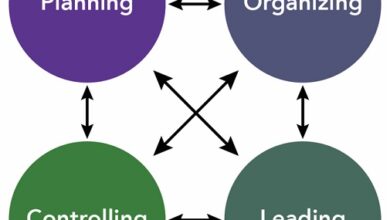What is Demagoguery characteristics of demagogues and Aristotle
Demagoguery
The word demagoguery comes from demo (people) and gogia (to lead, to lead), that is, to lead the people . In the past, it was used to refer to philosophers and thinkers, who led people through their ideas, but over time, it became a term linked to politics, gaining a pejorative connotation, related to manipulation .
Currently, demagoguery represents a posture adopted by many politicians throughout history, in which a series of promises are made that please the people and that, probably, will not be fulfilled. Generally, his speeches are full of slogans and simple language, all aimed at reaching the masses.
A good example of a demagogue was Adolf Hitler, the German politician leader of the Nazi Party. He took advantage of the fact that the population of Germany was distrustful of politics at the time and was looking for someone who would be a savior of the fatherland. So he knew how to use the media to his advantage to say what people wanted to hear, which made him stand out among other politicians and come to power.
Characteristics of demagogues
Demagogues often use specific techniques to reach the masses and achieve their goals. See, below, what are the main features they present.
Public people with great popular appeal
If demagoguery means the art of leading the people, it is important that the demagogue is a well-known figure or that he gains fame precisely through this posture. The more people who listen to what he says, the more followers he will attract, which will help him achieve his goals more easily.
Adjust your morals and ethics according to your interests
A demagogue does not demonstrate solid values when expressing himself or acting, but adjusts his morals and ethics according to his interests. In this sense, it is quite common to see individuals who are more conservative or progressive depending on the situation.
Use of appealing arguments
To convince the masses, demagogues use appealing arguments. Returning to Hitler’s example, part of his supporters did not agree with what he said, finding it exaggerated, but believed that it was just a way used by him to attract attention.
Use of distraction tactics
Demagogues often make random comments to evade important issues. If asked, for example, what their policies towards women will be, they answer: “I owe my life to the wonderful and hardworking women who raised me, my grandmothers and my mother”.
Flattery to win people over
Flattery is yet another common tactic among practitioners of demagogy to attract more and more supporters. When visiting a specific neighborhood, for example, the candidate says something like: “This neighborhood is part of my history, the residents here are hardworking and honest and I will remember everyone in my mandate”. Note that no solid proposals were cited, just empty praise.
Creating lies to harm opponents
The so-called fake news is nothing new in our time and has long been used by demagogues to discredit their opponents and gain the population’s preference. These accusations can either be vague, such as accusing someone of corruption without evidence or greater details, or more elaborate, with false news being sent to a large number of people.
speeches without content
As the intention is to impress and, at the same time, be understood by the people, the demagogue makes empty speeches with a few words considered scholarly to impress. Example: “I will do a herculean job to put this city in order, putting an end to the current mandate’s squandering once and for all, and I hope to count on your support, distinguished residents”.
demagoguery Aristotle
In the book “The Politics”, Aristotle points the demagogy as the corruption of the democracy as well as the tyranny corresponded to the corruption of the monarchy. Even a good king could turn into a tyrant if the flattery of his servants made him think only of himself and not of his people.
Excessive praise from courtiers could make the king think that only his well-being is important. In this way, the king was corrupted but not only: he was manipulated for the benefit of fawning servants.
Likewise, nowadays democracy is corrupted thanks to demagoguery when some elements of the political class (comparable to the courtiers of yesteryear) – who should serve the sovereignty of the people – use strategies to deceive them, making promises that will never be fulfilled. , all for your own benefit.




